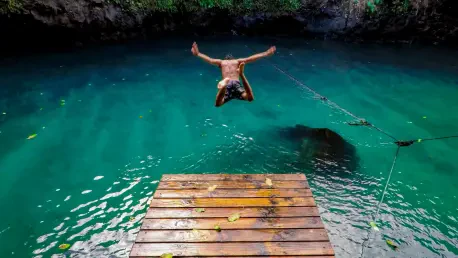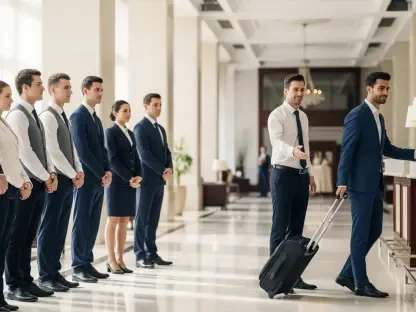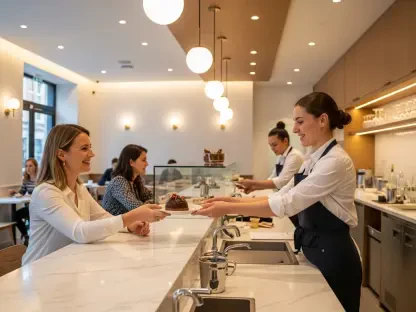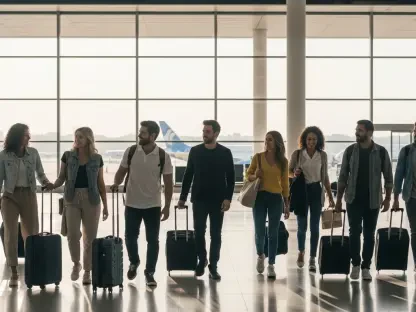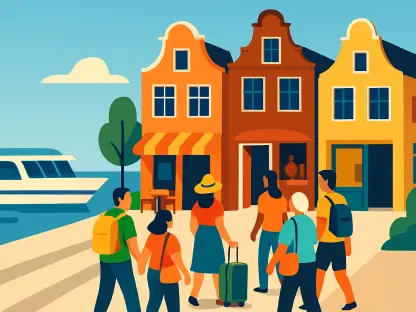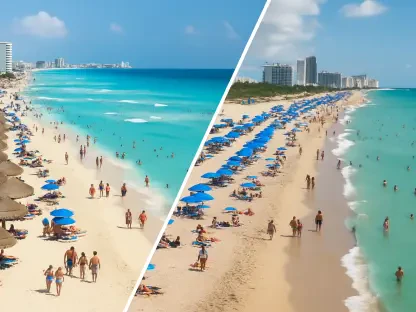In the vibrant intersection of ecotourism and education, Katarina Railko stands out as a knowledgeable advocate for sustainable travel and cultural exploration. With a wealth of experience in hospitality and an affinity for entertainment and events, Railko provides insight into the University of Newcastle’s mangrove regeneration project in Moata’a and its potential for transforming local tourism into ecotourism. This conversation covers themes such as the influence of unique environments, the role of education in tourism development, and challenges and opportunities within the sector.
Can you explain the main goals of the University of Newcastle’s mangrove regeneration project in Moata’a?
The foremost aim of the University of Newcastle’s project is to revitalize the mangrove ecosystems in Moata’a, which have suffered from multiple environmental threats over time. By restoring these mangroves, the project seeks to create a sustainable habitat that not only enhances local biodiversity but also opens the door for potential ecotourism avenues that could benefit the community economically and culturally.
How does the project plan to leverage these regenerated mangroves for future ecotourism opportunities?
The regeneration of mangroves sets the stage for unique ecotourism offerings. The project aims to integrate educational tours, environmental workshops, and guided visits that highlight the mangroves as a natural asset. These tours could attract eco-conscious travelers who appreciate the chance to learn about the ecological significance and conservation efforts firsthand, providing a dual benefit to both tourists and the local community.
What are some of the different ways ecotourism can manifest in Moata’a as a result of this project?
Ecotourism in Moata’a might take various forms, from guided mangrove walks that educate visitors on the ecological importance of these areas, to community-driven initiatives such as cultural exchanges or local arts and crafts exhibitions. Each form would contribute to a broader understanding of Samoa’s natural heritage and foster respect for local traditions.
Could you elaborate on the memorandum of understanding supporting this initiative? What does it entail?
The memorandum of understanding acts as a strategic framework for collaboration, formalizing the partnership between the University of Newcastle and the village of Moata’a. It encompasses aspects like visitor survey efforts and tourism model research, aiming to tailor tourism development strategies that align with Samoa’s ecological and cultural landscape, thereby ensuring mutual benefits for all stakeholders involved.
How are visitor surveys and research into tourism models expected to benefit Samoa?
Visitor surveys and research provide essential data that help shape sustainable tourism models specific to Samoa’s environmental and cultural context. They offer insights into traveler preferences and behaviors, allowing for the development of customized ecotourism experiences that satisfy tourist desires while safeguarding environmental integrity, thus enabling an economically viable yet ecologically conscious approach to tourism.
What role does the unique environment of Samoa play in building the country’s ecotourism sector?
Samoa’s rich and diverse ecosystem is a fundamental cornerstone for the nation’s ecotourism development. The unique flora and fauna, combined with the pristine landscapes, serve as attractive points for eco-travelers looking to immerse themselves in nature. This natural allure enhances the appeal of conservation-focused tourism activities, supporting both environmental preservation and cultural appreciation.
Why is the involvement of undergraduate students important to this project, and what will their contributions look like?
Undergraduate students bring fresh perspectives and enthusiasm to the project, adding valuable innovative thinking to the regeneration effort. Their involvement includes hands-on participation in community-based activities, offering practical support and promoting a cross-cultural exchange that enriches both their educational journey and the project’s outcomes through collaborative teamwork.
What opportunities do these students have to learn about community engagement and sustainability overseas?
Students traveling to Samoa will immerse themselves in diverse community activities that emphasize the importance of sustainability and cross-cultural understanding. By interacting with locals and participating in environmental projects, they gain firsthand experience in community outreach, learning to balance ecological preservation with social upliftment—a lesson that extends beyond textbook theory to real-world application.
How does the University of Newcastle’s focus on civic engagement influence its participation in the Moata’a project?
The university’s commitment to civic engagement underpins its involvement in the Moata’a project by promoting active participation in initiatives that have tangible social and environmental impacts. This focus encourages the university to invest in projects that not only foster academic growth but also contribute positively to local communities, reinforcing the importance of socially responsible education.
Has international exposure from events like CHOGM and the King’s visit increased interest in the Moata’a mangrove project?
Certainly, international exposure has magnified interest in the Moata’a project. Such prestigious events have spotlighted the unique allure of Samoa’s mangrove ecosystems, inviting a broader audience of potential eco-travelers intrigued by sustainable tourism opportunities. This heightened interest can lead to increased visitor engagement, which in turn boosts local awareness and support for environmental preservation efforts.
Who are “green travelers,” and why might they be interested in visiting Moata’a’s mangroves?
“Green travelers” are individuals who prioritize sustainable practices and nature conservation when choosing their travel destinations. They are drawn to places like Moata’a for its active involvement in ecosystem restoration, providing them with the opportunity to connect with nature while supporting responsible tourism initiatives. Their visit not only aids local economies but also imparts environmental consciousness.
What impact has the University of Newcastle’s involvement had on the local tourism industry?
The university’s participation has injected vitality into the local tourism sector by bringing innovative ideas and fresh energy that revitalize interest in Moata’a’s natural beauty. It fosters the development of sustainable tourism practices that empathize with ecological and cultural preservation. The partnership signals the tangible benefits of collaboration, motivating local stakeholders to invest further in ecotourism.
How does Theresa Ah Kuoi feel about her university’s efforts in tourism development, and why might this be significant for her career?
Theresa Ah Kuoi expresses pride and contentment with the university’s proactive role in promoting sustainable tourism. Her firsthand experience enhances her professional profile, boosting her credibility in the tourism industry and demonstrating her commitment to environmentally respectful tourism practices. Such involvement can pave the way for career advancements and further opportunities in tourism planning and policy-making.
In what ways can participating in the Moata’a project impact the students’ understanding of Samoan culture?
Participation in the Moata’a project allows students to engage directly with the local community, providing them with deep insights into Samoan traditions, values, and environmental philosophy. This cultural immersion fosters appreciation and respect for the country’s heritage, broadening their worldview and underscoring the importance of cultural sensitivity in global tourism.
What hopes do you have for the students visiting Samoa through this initiative?
I hope the students gain transformative experiences that bridge academic theory with practical application, enhancing their understanding of sustainable practices. My aspiration is for them to cultivate a genuine appreciation for Samoan culture and traditions, reinforcing their commitment to responsible tourism and community service, ultimately shaping them into thoughtful global citizens.
